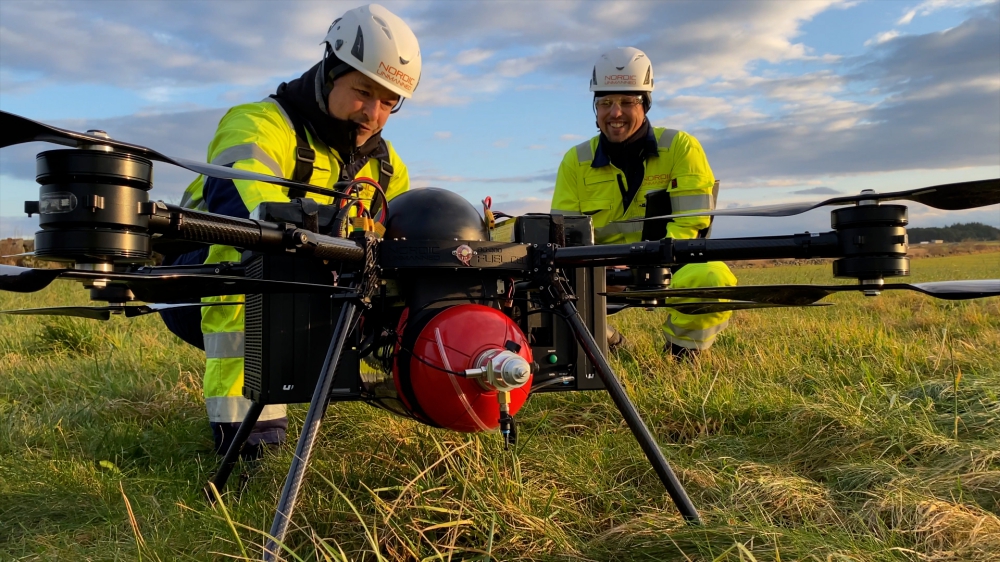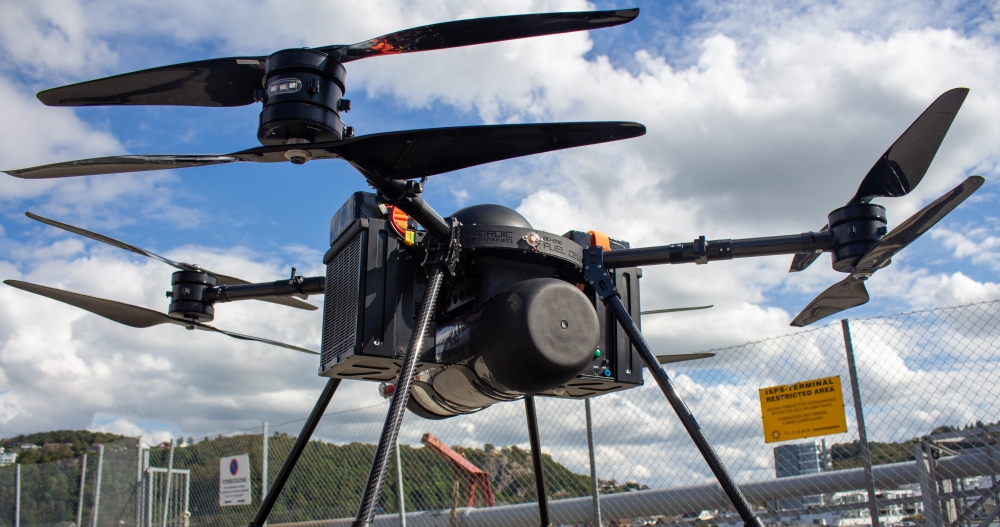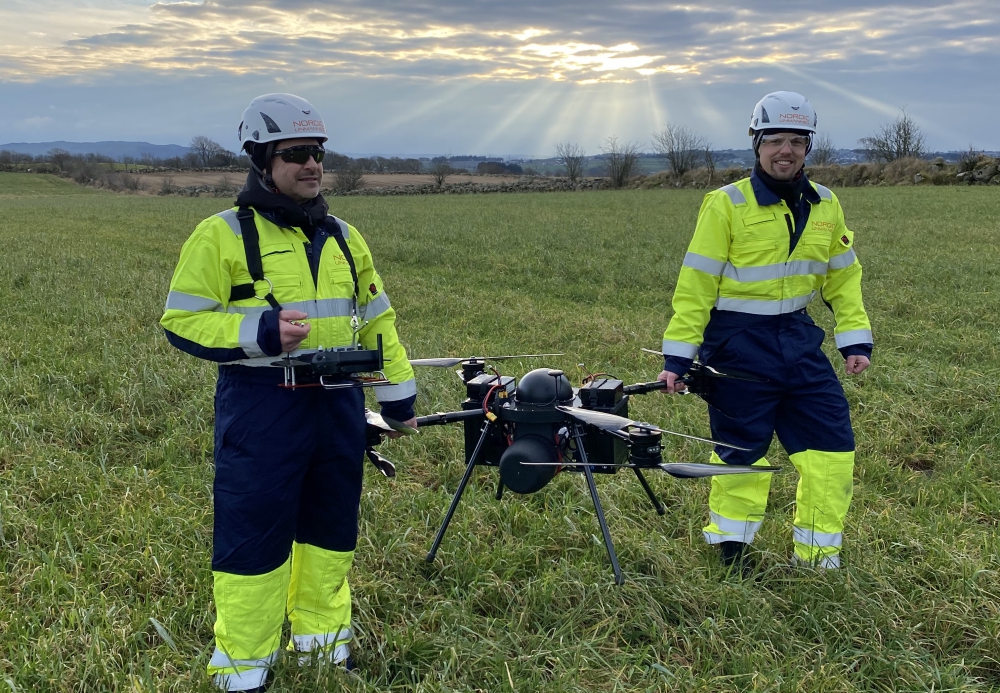Nordic Unmanned AS has carried out a successful test flight with a hydrogen fuel cell powered Staaker BG-200. This drone is a robust and versatile platform that is adapted to Nordic conditions
It is equipped with a 2kW customized fuel cell system from HES and a 7.2 L pressure vessel with hydrogen at 300 bar. With a 9 L pressure vessel, an endurance of 120 minutes can be achieved. The standard Staaker BG-200 has a maximum take-off mass of 25 kg and has a typical endurance of 60 minutes (no payload). The goal is to have the fuel cell system as a “high endurance module” that can be installed on any “fuel cell ready” Staaker BG-200.
Through this project, Nordic Unmanned taps into the potential in hydrogen-powered aviation. Fuel cells are an environmentally friendly technology that also can provide superior performance for certain applications. The research project takes a broad approach to the topic and dives into multiple aspects regarding the potential and viability of hydrogen-powered drones. The research project was initiated in 2018 and has been carried out in the framework of an industrial Ph.D. program funded by the Research Council of Norway. R&D Engineer and Ph.D. candidate, Jørgen Apeland states:
“This is a significant milestone for the project. Hydrogen-powered aviation is a part of the future, and with the successful test flight today, we made an important step towards making it happen.”
By doubling the endurance, operational efficiency and range can be improved. This might enable certain applications where mission endurance and range are essential, like beyond visual-line of sight (BVLOS) operations for logistics, search and rescue, and inspections. Thus, the value proposition of multirotor drones can be significantly improved, closing the capability and performance gap between certain fixed-wing UAV platforms. Fuel cells also offer the benefits of no emissions, low noise profile, and mechanical vibration challenges compared to other high-endurance options.
The regulatory landscape for unmanned systems is evolving rapidly, and the prospects for certification and deploying the system in full-scale operations is an important aspect for the project to investigate. We are therefore happy to have received approvals from the CAA-N, after a rigorous process, that will allow us to carry out further testing. We look forward to further testing and sharing our experiences and results with regulators and relevant stakeholders.
Knut Roar Wiig, CEO of Nordic Unmanned, explains why this innovation is so important for the future of unmanned technology.
“This is a long-term research effort from Nordic Unmanned that aligns with our goal of establishing a strong community within research and development of unmanned systems in Norway, and to advance unmanned aviation.”
The current project will conclude Q2 2021, and based on the findings, the way forward will be decided. If the technology is found to be viable and provide value, Nordic Unmanned intends to further develop the BG-200 FC for the commercial market and use it for in-house operations. It might also be possible that further research efforts will be initiated to address some of the main constraints and challenges to further improve the value proposition. Nordic Unmanned is looking to team up with potential users, customers, and technology providers to bring the best end-to-end solutions to the market.
Source: Press Release



